Developing TA Training Modules
In an effort to support Duke’s goal of providing a baseline level of training to all Duke teaching assistants (TAs), we partnered with the Provost’s office and Student Affairs to create a series of TA training modules that provide TAs essential knowledge on counseling resources for Duke students, respecting student privacy, upholding academic integrity, and understanding the basics of Title IX policies on sexual misconduct and harassment.
Summer Computing Institute
We worked with faculty in Duke Engineering to create the Summer Computing Institute, an online programming bootcamp for STEM undergraduate students at Duke and beyond. A key feature of this program was to increase diversity in STEM through 10 scholarships, funded by Electronic Arts, for students from underrepresented minority backgrounds.
Space Medicine House Course

For the first time ever, we partnered with two Duke students (Dominic Tanzillo and Nick Saba, who both graduated in May 2021) to design an online learning experience. Based on Dominic’s and Nick’s popular house course, Space Medicine was a six week summer online learning experience for Duke students and alumni that surveys key medical challenges in supporting human health during space exploration. Over 200 alumni and students enrolled in the non-credit course, and the course will re-launch as a public Coursera course this fall.
Expanding Divinity’s Online Learning Portfolio
We supported Duke Divinity in the expansion of its digital learning portfolio, including working with Divinity faculty to design courses for its hybrid Theology and Health Care certificate, advising faculty on hybrid learning for Divinity’s new hybrid version of the school’s Master of Divinity flagship program, and beginning the learning design for new non-credit, online courses and programs.
Integrating Computational Disciplines Across Campus
Learning Innovation began collaborating with the Center for Computational Thinking (CCT) and its partners in the design of online learning experiences that map to the CCT’s mission to integrate computational disciplines across Duke’s curriculum. As a first step, we are working with CCT and the Innovation Co-Lab to create co-curricular learning tracks of modules that teach students the basics of data science and software engineering. These tracks will also help meet the co-curricular learning needs of CCT’s Certificate in Digital Intelligence (DQ).
